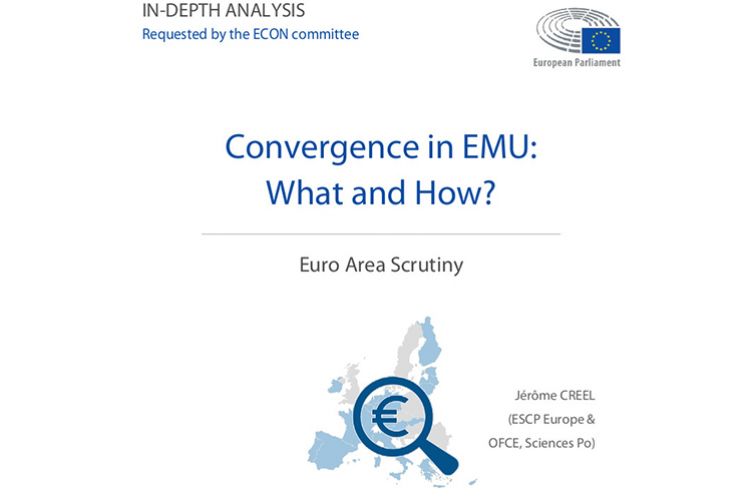JÉRÔME CREEL WROTE A REPORT ABOUT CONVERGENCE IN THE EMU FOR THE EUROPEAN PARLIAMENT’S ECON COMMITTEE IN APRIL, AND WAS AUDITIONED IN JUNE BY TWO MEMBERS OF THE FRENCH NATIONAL ASSEMBLY WHO RELEASED THEIR REPORT LAST WEEK.
“One major characteristic of an optimal currency area is its ability to maintain or foster integration and convergence among its Member States”, explained the Associate professor of economics at ESCP and Director of Sciences Po’s Research Department at OFCE (Observatoire Français des Conjonctures Economiques) in the report about convergence in the Economic and Monetary Union (EMU) he wrote at the request of the Committee on Economic and Monetary Affairs (ECON) in the context of EU reform discussions. “This objective requires reaching a stable economic and financial situation and developing resilience to shocks”. After reviewing the state of convergence in the euro area, his paper proposed a number of recommendations aimed at improving convergence towards the steady state, as well as financial and cyclical convergence. These recommendations focus on several policy areas, including cohesion policy and a structural budget for the euro area, the statute of the European Central Bank as a lender of last resort, public and private debt sustainability, an impetus given to national automatic stabilisers and a European coordination on minimum wage policies. Some require a European Treaty revision, which may make them less easily applicable, but according to Jérôme Creel “it does not make them less necessary to the good functioning of the euro area”.
He was also quoted several times in the “information report” on the euro area’s future (in French) just made public by the French National Assembly, with his notes on his opposition to a European unemployment insurance system in response to economic shocks published in the annex.
Jérôme Creel’s research has focused on European integration, on the macroeconomics of the euro area, like fiscal and monetary policies and their interactions, and on financial stability. He has co-edited several books and journal issues, published many articles in leading economic journals in the field of macroeconomics and international economics, works periodically with the media and participates regularly in hearings and reports for the French and European Parliaments.
Campuses
